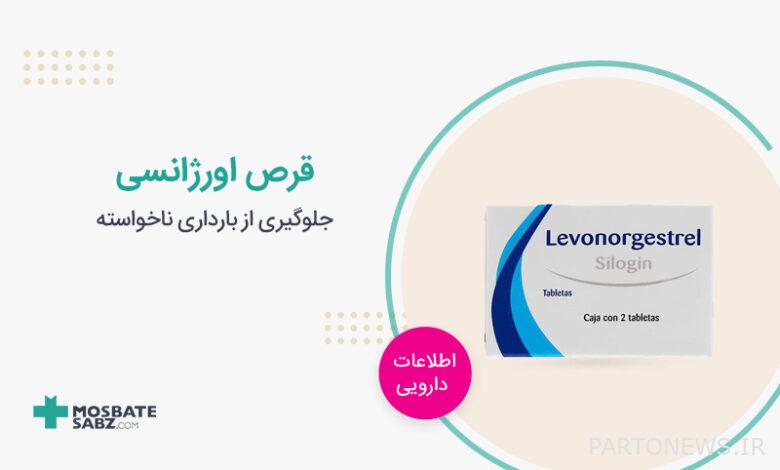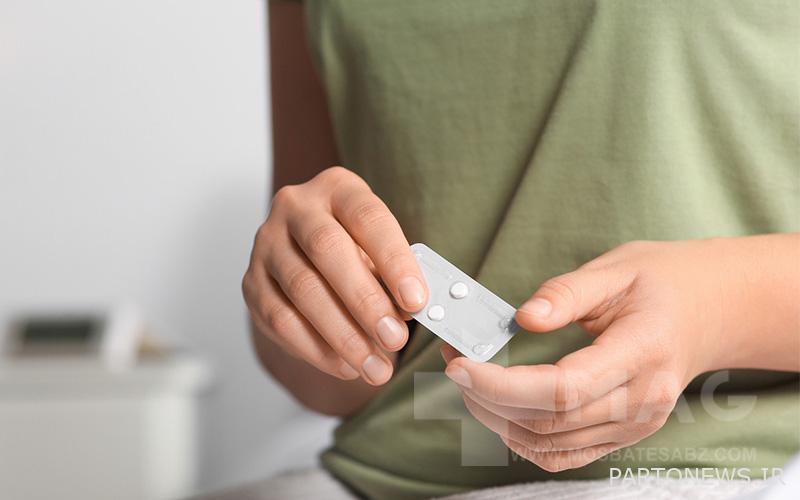What is an emergency pill?

Emergency pills are considered as one of the important and effective methods of preventing unwanted pregnancy. This action has helped to increase control over fertility and people’s decision-making about the time and circumstances of their children’s birth and has played an important role in reducing the fertility rate. However, excessive and excessive use of this pill will cause complications and problems in women. In this article, we review emergency pills from a broader perspective and provide comprehensive information about the mechanism of action, uses, precautions, and side effects of this pill.
What we read in this article
Medical forms of contraception (emergency)
The emergency contraceptive pill is available under the brand names My Way, Plan B One-step, Preventeza, and Take Action.
- The biggest changes that will happen in WhatsApp this yearFebruary 3, 2024
- Applications for locating family and friends on AndroidFebruary 2, 2024
Uses of emergency pills
Emergency contraception is a way to prevent pregnancy after unprotected sex. Emergency contraceptive pills (ECPs), often called the morning-after pill, are pills that can be taken up to 120 hours (5 days) after unprotected sex. Some types of emergency contraception work best when taken within 72 hours (3 days) of intercourse. A copper IUD can also sometimes be used as an emergency contraception method.
Pharmacological effects and mechanism of action of emergency pills
Emergency contraceptive pills work by delaying ovulation (the release of an egg in the monthly cycle). If fertilization and implantation have already taken place, birth control pills (ECPs) cannot terminate a pregnancy. This drug is rapidly absorbed orally and metabolized in the liver, and finally excreted through urine.
Emergency pill dosage
Some types of non-prescription emergency contraceptive pills are available in pharmacies for anyone of any age without a prescription. Only one type of emergency contraception (which works well up to 5 days after unprotected sex) is available by prescription only. It is also a type of copper IUD pill that is used for emergency contraception and must be prepared and prescribed by a doctor or nurse. If necessary, it is better to consult a doctor before use regarding the exact time of use and its precautions.
The rate of pregnancy prevention by the emergency pill
- About 1 or 2 in 100 women using ECPs will get pregnant within 72 hours of unprotected sex despite taking the pill.
- Many people take this pill in the morning after sex, so it is also known as the morning after pill. The name of the next morning is misleading and it is not necessary to wait until the next morning to take this medicine. Emergency contraception is most effective when taken as soon as possible after unprotected sex.
- Emergency contraception will not prevent pregnancy if unprotected sex occurs after taking ECP.
- Emergency contraception does not prevent all pregnancies. Therefore, if you do not have your expected next period after taking ECP, see your doctor.
Time to take the emergency pill (ECP)
- If this pill is taken within 24 hours of unprotected sex, the chance of pregnancy is reduced by about 95%.
- If taken within 48 hours of unprotected sex, it reduces the chance of pregnancy by about 85%.
- If taken within 72 hours of unprotected sex, the chance of pregnancy is reduced by about 58%.
- Note that ECP may work up to 5 days after unprotected sex.
- You can expect a period of 1-3 weeks after taking ECP. If you don’t get your period as expected, take a pregnancy test.
Time to take the emergency pill
When thinking about how effective the emergency contraceptive pill is at preventing pregnancy, it’s important to keep in mind the right time to take the pill, which is the key to its effectiveness. All types of emergency contraceptive pills are more effective the sooner they are taken. Also, you don’t need to wait until the next day to take these medicines. There are specific time frames for each type of emergency pill. Progesterone only should be taken within the first 72 hours (three days) after unprotected sex. Olipristal and combination options can be taken up to 120 hours (five days) after sex.
How does the emergency pill not work?
- Taking the emergency pill with a delay of more than 72 hours after sex: emergency pills are most effective within 72 hours after sex. If you take the pill after this time, the possibility of pregnancy increases.
- Weight over 75 kg: Research has shown that the emergency pill may be less effective in women who weigh more than 75 kg.
- Taking certain medications: Some medications, such as certain antibiotics, can reduce the effectiveness of emergency pills.
- Existence of medical problems: Some medical problems, such as digestive and liver problems, can interfere with the absorption of emergency pills. Consult your doctor about your medical history and drug effects before taking any emergency pills.
Learn more: How many days do the effects of the emergency pill remain in the body?
Different doses of emergency contraceptive pill
There are different doses of emergency contraceptive pill including levonorgestrel 1.5 mg and levonorgestrel 0.75 mg available in the market, 1.5 mg of which is the most common dose used by consumers. This dose is taken as a single dose after unprotected sex. Also, the 0.75 mg tablet of this medicine is taken in two doses with an interval of 12 hours.
Precautions
- High body weight (body mass index (BMI) greater than 25) reduces effectiveness in some women. To ensure the use of the right dosage and medication, consult your doctor about it.
- If you vomit within two hours of taking the ECP emergency pill, talk to your doctor about the side effects and risks (you may need to take the vomited pill again). If necessary, the doctor suggests you to use other medicinal forms of the emergency pill.
- If your period is more than a week late, you should take a pregnancy test.
- The ECP emergency pill does not protect against HIV infection and other sexually transmitted infections (STIs). Practice safe sex and always use a condom with lubricant when having oral, vaginal or anal sex.
- Specific research and information regarding the use of this pill in people with kidney or liver diseases is not available. Before taking emergency pills, these people should consult their doctor regarding the risks of using it for kidney or liver. Because some medicinal forms of emergency pills (high dose) cause risks and even toxicity in patients.
- This pill is not intended for children under 17 years of age (before menstruation) and specific information regarding the effects of this medicine on these people is not available.
- The use of emergency pills is recommended only in necessary cases, continuous and excessive use of this medicine will cause side effects.
- See your doctor if you feel any pain in the lower abdomen or any abnormal bleeding in the weeks after taking this medicine.
Contraindications for emergency pills
- Undiagnosed pregnancy or vaginal bleeding
- Severe arterial disease
- Hepatic adenoma
- Porphyria, after removal of the hydrate form (until the level of gonadotropins in plasma and urine return to normal)
- Breast and genital cancer

Side effects of emergency pills
Nausea or vomiting, irregular menstruation, headache and dizziness, breast tenderness, bleeding between periods or heavy bleeding during menstruation, pelvic pain, abdominal pain, muscle cramps, etc. are some of the side effects of the emergency pill. If any of these do not improve or get worse, talk to your doctor or pharmacist. Many users of this drug do not have serious side effects. However, some serious allergic reactions to this drug include shortness of breath, hives, itching, swelling of the face, swelling of the lips, swelling of the tongue, or swelling of the throat.
- hip pain
- Nausea or vomiting
- Dizziness and headache
- tiredness
- stomach ache
- Breast sensitivity
- Irregular menstruation
- Mood changes
- muscle cramps
See more side effects of emergency pills: Get to know the worst side effects of emergency pills
Drug interactions of emergency pills
- Class X interactions (avoid): encorafenib, griseofulvin, ixazomib, pexidartinib, tranexamic acid, ulipristal
- Reducing the effects of drugs by emergency pills: anticoagulants, antidiabetic drugs, fosamprenavir, ulipristal, vitamin K antagonist
- Reducing the effects of emergency pills by drugs: lixisenatide, lopinavir, lomacaftor and ivacaftor, metreleptin, mifepristone, mitotane, mycophenolate, nelfinavir, nintedanib, octreotide, oxcarbazepine, prampanel, pexidartinib, phenytoin, pitolisant, primidone, retinoic acid derivatives, rifamycin derivatives, saquinavir, sarilumab, ciltuximab, tea herb, sugammadex, tazemtostat, tetrahydrocannabinol and cannabidiol, tocilizumab, topiramate, ulipristal, dabrafenib, darunavir, deferasirox, efavirenz, encorafenib, enzalutamide, erdafitinib, eslicarbazepine, exenatide, felbamate, fosamprenavir, fosoperpitant, fosfenib tween Griseofulvin
- Increasing the effects of the emergency pill by drugs: atazanavir, carfilzomib, cobicistat, herbs (with progesterone effect), lopinavir, metreleptin, mifepristone, tipranavir, voriconazole
Taking emergency pills during pregnancy and breastfeeding
Emergency pills should not be used in pregnant or lactating women. Animal and human studies have reported cases of birth defects or the risk of fetal death due to the side effects of using this drug during pregnancy. This evidence is obtained through research, market experience or human studies. Therefore, the risk of using this medicine in pregnancy is greater than its possible benefits and it should not be used.
Emergency pill storage conditions
The emergency pill should be stored at room temperature and away from light and moisture. How to store this pill is stated on its packaging. Also, keep all chemical and herbal medicines out of the reach of children and animals.
The last word about the emergency pill
As we said in this article from the online positive pharmacy magazine, the use of emergency pills is an individual decision that must be made with care and awareness. This article provides the audience with comprehensive information about this pill so that they can make an appropriate decision about their fertility control. In addition to the excellent benefits, this pill has many side effects and appears in the user in case of excessive consumption. In addition to physical advantages and disadvantages, the decision to take this drug can have social and cultural effects.

